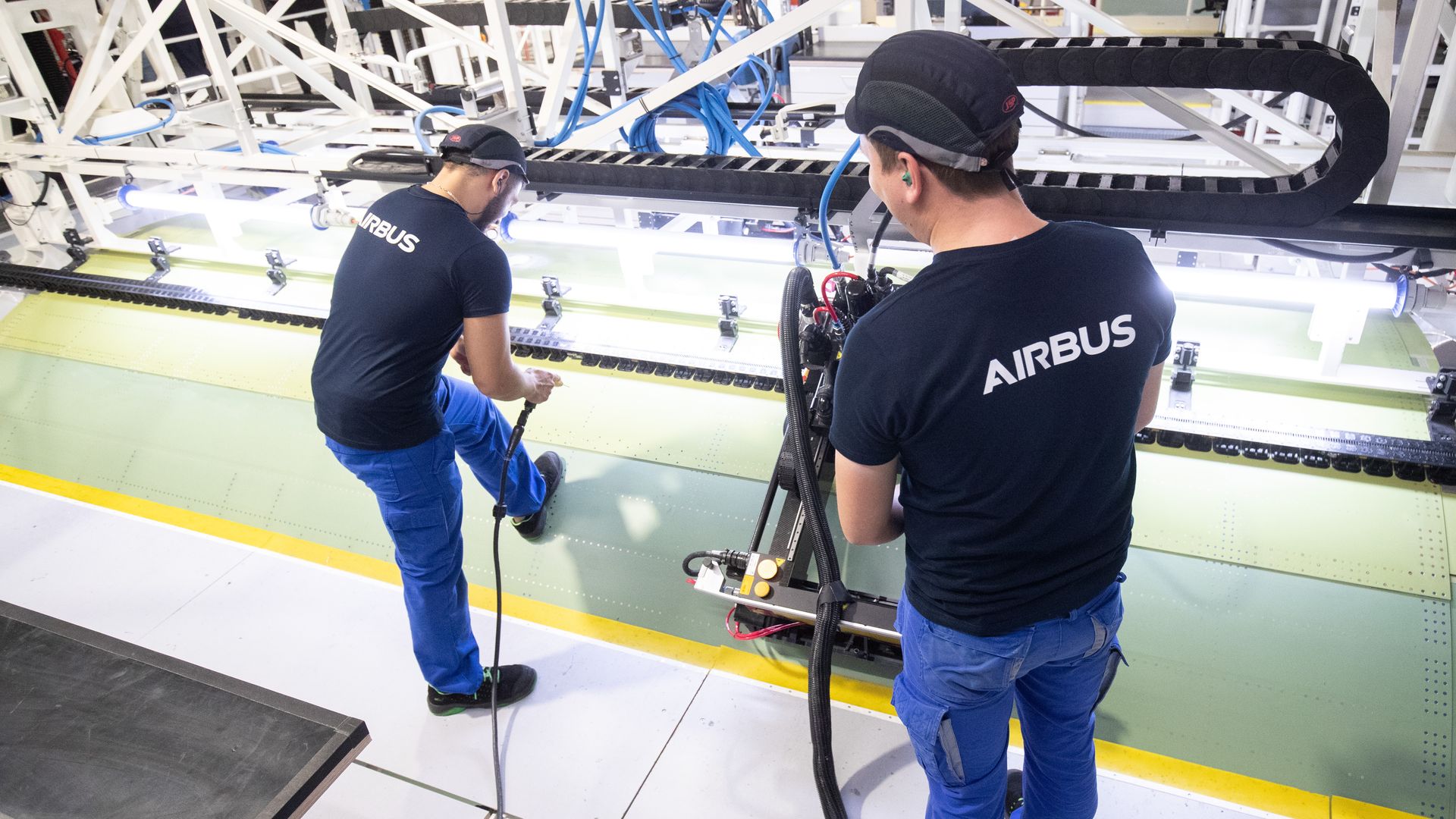Updated Oct 2, 2019 - Economy
U.S. to implement new EU tariffs on cheese, whiskey, other goods
Add Axios as your preferred source to
see more of our stories on Google.

Technicians work on a fuselage segment in the new structural assembly of the Airbus A320 family at the Airbus plant in Germany. Photo: Christian Charisius/picture alliance via Getty Images
